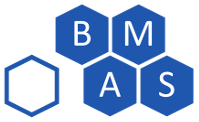
This post is part of a series of thoughts from BMAS founder/owner Jon Breen on how we learn in industry and how that’s changing. Check out all the posts in our Brain Outside Your Brain series.
“Well… Can you fix it?” The Plant Manager asks me impatiently. Here I am on an emergency service call. I’ve never seen this machine before, but it’s not working, and the company’s losing $20K per day until it’s fixed. The plant manager looks at me like I’ve got a cape and spandex hiding under my polo. I feel a lurch in my stomach. Here we go again.
Nobody can know everything, especially in a technology-related field like industrial automation. There’s always some new piece of hardware, programming concept, safety requirement, or communication standard, and it’s my job as a controls engineer to be able to work with all these things efficiently. Time is money, especially in this business. How can I do a job without actually having the knowledge required? This sounds like a job for a “Brain Outside Your Brain” (BOYB) approach. Where is that extra brain and how do I access it? The answer depends on the specifics. Let’s take a look.
Where’s the information?
Here are the sources I reach for most often:
Google – Yep, this is still the key to the internet, but it works best if you’ve got the right search terms (see below). It’s also important to know that the internet is only part of your BOYB.
Manuals – If I’m designing something or checking a spec, I’ll look first for a “user manual” (Google search “<part #> user manual” and it’s usually the first result). Some manufacturers prefer the term “datasheet,” so that’s the next thing to try. If I’m installing a component, I’ll look for an “installation manual.”
Forums – These are places on the internet where people can post questions, answers, new insights, examples, etc. They are limited when it comes to typical industrial things (PLCs, HMIs, etc.), but they’re remarkably helpful when it comes to anything PC-esque. Trying to write a script to automate some of your work? Need help with MS Excel? Working with databases or text-based languages? Forums are a great place to find information fast. It’s almost as fast as actually knowing it. Google your question and you’ll find forums pop up in the search results. (For example: Google “MS Excel averaging” or “java if-then example”).
Applications Engineers – Industrial products are expensive (it’s true), but some of that money goes to paying qualified engineers to help you specify parts, write the program, and troubleshoot your application. You’ll find these people with either the distributor or manufacturer of the component, sometimes both, and often for free. Google either company and give them a call. Ask for applications support and you’ll find the right person.
Machine Documentation – I don’t remember all the details of anything I work on, and I certainly don’t know all the particulars about a machine I haven’t seen before. Those are recorded in documents like schematics and the bill of materials (BOM). Hopefully you can find them when you need them! (Google doesn’t work here.)
Plant Personnel – If I’m working on an unfamiliar machine, my first source of information is the person who knows about it – usually the plant manager, maintenance technician, or operator. A person can quickly tell you how the machine usually works, what’s different today, when the malfunction started, if they remember this happening before – all sorts of goodies. It’s important to note here, we’re entering a realm where engineers can be disadvantaged: people skills. Recognize that nobody’s recollection or interpretation will be perfect. Ask good questions. Try to get a feel for the confidence and accuracy of the responses. Ask more questions to clarify, and ask other people if possible. DO NOT tell people they’re wrong, even if they are. They’ll stop talking and you’ll lose whatever helpful information might have come next.
Saving the Day
So how do I pull on these resources to fix the mystery machine before the company goes bankrupt? I’m going to avoid a big flow chart and simplify the answer to two critical steps:
Step 1: What’s the problem?
Talk to the plant personnel. Quickly get an understanding of what the machine is supposed to do, what it’s doing now, when the change happened, and any other relevant details. While I’m asking questions, I’m guessing at what the problem might be and focusing new questions towards understanding it. I’ll list the possibilities in my mind, guess the likelihood of each, and ask myself how I can test each hypothesis.
Step 2: Test the hypotheses
Do we think it’s a bad sensor? Check it. Bad input on the PLC? Watch the lights on the input card. Is it unclear why the machine keeps faulting? Connect to the PLC and see what that fault really means. All the while, I’m pulling any resource I need to better understand the problem – machine documentation to troubleshoot wiring, user manuals to look up fault codes, talking to maintenance techs about the machine’s history, and so on.
If I don’t have the knowledge or tools to test a hypothesis, I’m calling tech support (or applications engineers) for the component in question. I’ll briefly describe the machine and the problem, ask if my hypothesis makes sense, and look for additional troubleshooting steps. These people often have a lot of experience with the parts they’re supporting. By picking up the phone, I get to benefit from that experience as well.
Day saved!
This is a standard troubleshooting process, aided immensely by information from sources other than my brain. I don’t save the day by knowing everything. I save the day by knowing where to find the information. Know your resources. The better you are at using them quickly, the faster you’ll get the job done and the more valuable you’ll be.
Does anyone have their own superhero story? Share it in the comments.

About the Author
Jon is an engineer, entrepreneur, and teacher. His passion is creating and improving the systems that enhance human life, from automating repetitive tasks to empowering people in their careers. In his spare time, Jon enjoys engineering biological systems in his yard (gardening).









